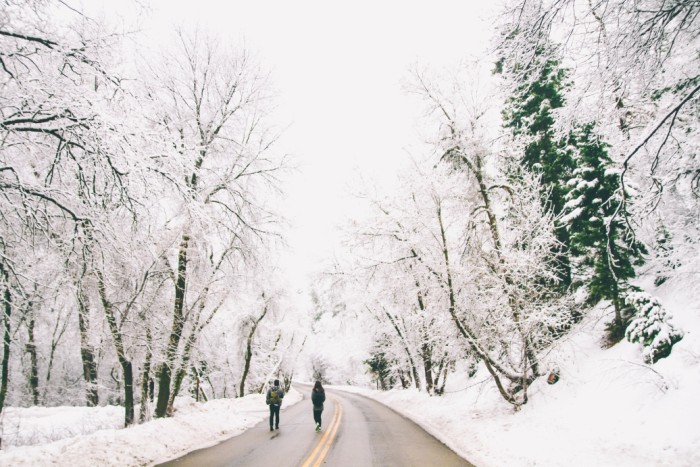I believe that travel is one of the greatest privileges one could have. It allows all sorts of different people and cultures to connect, to learn (about themselves and others), to try to understand, grow, and change for the better. But travel can also be very harmful in certain ways.
A big one that comes to mind is the potential threat it holds against our ecosystem. Think of all the tourist spots, resorts or planes you have frequented in the past. Think of the carbon footprint that just one of them has, let alone all.
But while travel can be very environmentally taxing, but it doesn’t have to be. All it takes is a little bit of awareness and forethought to reduce the impact your trip has. There still will be some impact- that’s undeniable. But any reduction is a progressive stride, at least.
Here are a few ideas to get you thinking about how to reduce your footprint while travelling:
-Invest in your own reusable utensils
Think about how much plastic silverware you use when out of town- on airplanes, at impromptu picnics, when ordering take-out or eating street food. Every meal is a new pack of utensils waiting to be thrown in the landfill. A reusable, eco-friendly set like these are totally worth it.
-Bring a water bottle and refill it
Just like plastic utensils, those plastic water bottles really add up- both fiscally and environmentally. (Personally, I think they should be illegal- but that’s a rant for another time). If you’re going somewhere with questionable tap water, try to think ahead and visit a purified water station before heading out for the day. Restaurants also usually have drink-safe water and will refill your bottle for you if you ask.
-Say no to shopping bags
Souvenirs are a great way to remember your trip or share it with loved ones, but not when they come triple-wrapped or put in individual plastic bags. Instead, opt to put souvenirs straight into your purse or backpack (or bring your own empty totes if you’ll be doing lots of shopping). Also, try to consolidate items into one bag. Not only is it more sustainable, but also easier to carry.
-Rethink your transportation
Sure, a cab or car may be quick and easy, but it’s also quite wasteful if you’re travelling solo (or even in a small group). Even if you have luggage, you can often be accommodated nicely on a train or a bus. (Not to mention that these options are typically much cheaper). Of course, the greenest option is to walk or bike, if you’re able. It’s also a great way to see a city, as you often find little gems that you might miss otherwise.
-Limit showers
Try to “save” your showers for when you absolutely need them- like after a day of trekking through the humid rainforest or swimming in natural bodies of water. If you’ve been perusing shops and museums, you’ll probably be fine with a washcloth wipe-down and maybe a little dry shampoo. (We really don’t need to bathe as often as most Westerners do). When you do shower, try to keep it short and sweet to save water and time.
-Turn off and unplug before you leave
Just because it’s a hotel and you’re not paying the bills doesn’t mean you can leave all the lights or A/C on when not in use. It can have a huge impact- especially if every person in the accommodation were to leave without switching off. Leaving outlets in the socket while not in use is also an energy drain, so be sure to remove these before heading out. Even if your phone isn’t attached to the charger, the cord still takes energy from the outlet when left in there.
-Eat locally
It’s understandable to miss your favorite foods while abroad, but hold out on buying your hometown classics. Choosing foods that are imported from overseas (or even other states) results in meals with much higher total carbon emissions. Use this as an opportunity to sample the local cuisine- for the cultural experience, richer flavors, and sustainability factor.
-Pack light and practically
A lighter suitcase means less fuel used by your mode of transportation. It also means fewer articles of clothing to wash (i.e. more water saved). Try to pack things that can be worn multiple times before being washed, and are versatile enough to be combined in various ways. Light, quick-drying clothes are great for layering, easy washing, and efficient packing.
Try to be creative and thoughtful when planning your next trip. What other ways can you reduce your waste or your consumption?
Also by Quincy: 5 Free or Inexpensive Vegan Meals Around the World
What Going Abroad Has Taught Me About Making Friends
Related: 11 Best Travel Tips for Stress-free Travel
Get more like this–sign up for our newsletter for exclusive inspirational content!
__
Photo: Abigail Keenan via Barn Images; THOR via Flickr






